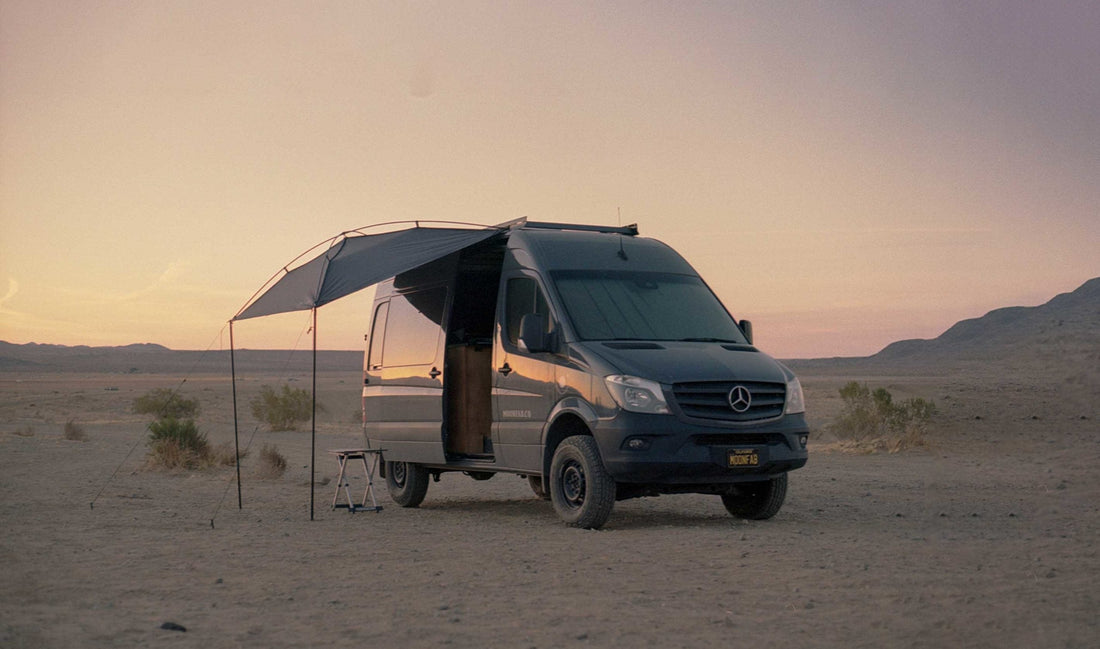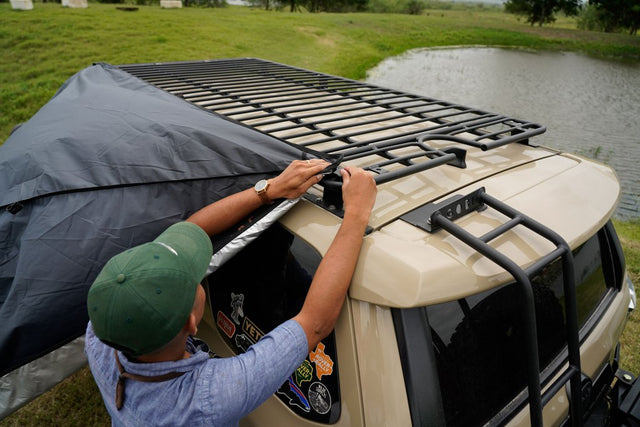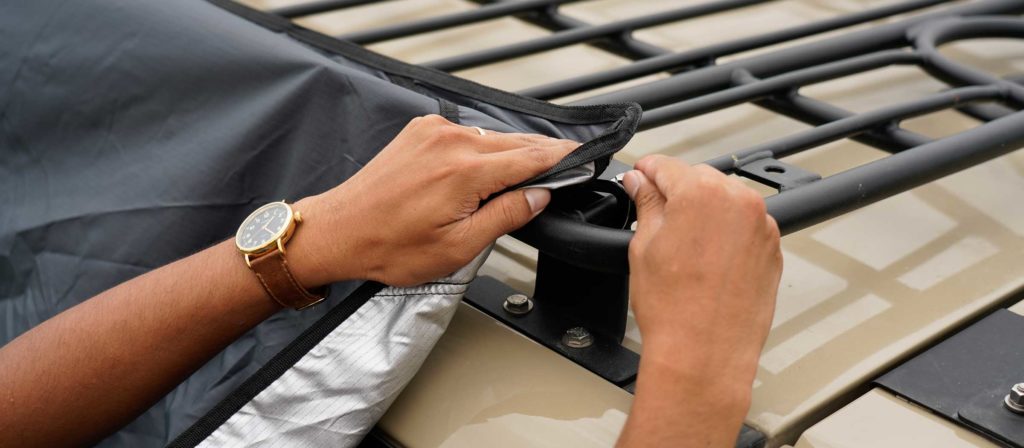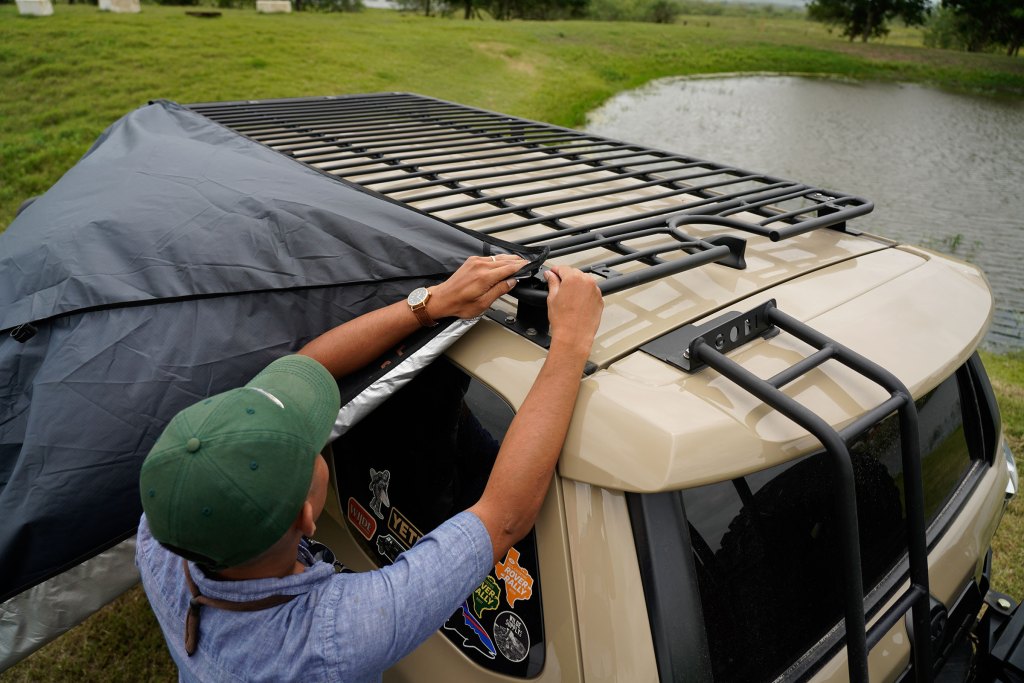
"I found myself alone with the same question echoing in my mind: why wouldn’t I go?"
—Henry Proegler
The idea for the On the Road series was born out of a desire to connect with the travelers, wanderers, and van-lifers that make up the community of MOON customers, to go out to meet them where they were and listen to their stories. We decided that we would create twelve mini-documentaries based on this community, each one a portrait of an individual, their vehicle, and their life. With my own experience of producing documentary films, it felt like a natural direction for us, but we weren’t quite sure how the project was going to get made.
On a long drive out to Lake Tahoe to meet with Matthew, the co-founder of Moon, I found myself alone with the same question echoing in my mind: why wouldn’t I go?


I reached out to Richard Carpenter with a pretty reasonable sales pitch: three weeks in a van together, six or seven thousand miles of driving, sometimes sleeping in campsites, some nights not sleeping at all. I would do the planning and make the connections, and he would film and take photos. Up to that point we had just been acquaintances — we’d lived in the same city for a while and grabbed a beer together once, and possibly shared the same therapist. It would be low risk, lots of freedom — if the documentaries don’t work out, if the photos aren’t great, we still can have an adventure. He said yes. I had a feeling that the trip would be a lot of fun (spoiler alert: it was great), but I didn’t realize how much that going out in the van to tell these stories would become a story of its own, a story that we’ll get to tell alongside the others.
In the lead up to the release of the first part of the ‘On the Road’ series, Richard and I talked about the experience of going on this adventure together.
Here are a few excerpts from that conversation —
Richard:
When people ask me about the trip, I tell them that we drove around for three weeks on the road in a van and shot documentaries of other people that spend their life on the road… but I don’t think until people see the stories that we captured that they’ll be able to understand how cool that actually was.

Henry:
I started making videos with my friends in junior high– stupid, funny videos, but my first experience with filmmaking was just making stuff with people I loved. It’s easy that way. When it starts becoming part of the way you make your living it’s easy to lose sight of the joy of it. But this trip was different, rolling up to somebody and asking “tell me why you live this way?”, and then getting a sincere answer. It feels like the most pure filmmaking I’ve done in a long time.
The cool thing about a project like this, is that it was meaningful to us, and I think it was meaningful to our subjects. I think they’ll be able to see themselves in it and feel known, which to me is the mark of a good documentary.
I didn’t realize how much that going out in the van to tell these stories would become a story of its own, a story that we’ll get to tell alongside the others.
Richard:
You said this felt like the most pure filmmaking you’ve ever done– you were just coming off of making a documentary for ESPN, and I was still pretty new at working for myself as a photographer and videographer. It’s almost like you worked backwards, scaled down the whole film crew to just you and me, and then we both had this really special experience together as creators and filmmakers coming from those totally different situations.

Henry:
I think that both the surprising and unsurprising thing about this trip is that I would hang out with every one of the people we met on the road. I really think we’re building a community with this. I’m excited for people to see these stories and my hope is for some of those people that find On the Road, they might feel like “these are my people.”
I would hang out with every one of the people we met on the road. I really think we’re building a community with this.
And that’s the common thread throughout all of these stories and people that we met…they’re all wildly different, live in different states, and have different lives. Some were in their twenties, some were past seventy. We met working class people, people that identified as non-binary, an actor that had played Luke Perry’s accountant in Beverly Hills 90210, nurses, widowers…and none of that came out of some conference room meeting where we decided we wanted to build a diverse campaign for Moon. This all came together from an email I sent out to customers in four states and asked who wanted to tell their stories on camera. And this is what came out of that, and that’s why it feels so pure.




